Constitution Change within the Philippines: A Nation at a Crossroads
Associated Articles: Constitution Change within the Philippines: A Nation at a Crossroads
Introduction
With nice pleasure, we’ll discover the intriguing subject associated to Constitution Change within the Philippines: A Nation at a Crossroads. Let’s weave fascinating info and provide contemporary views to the readers.
Desk of Content material
Constitution Change within the Philippines: A Nation at a Crossroads
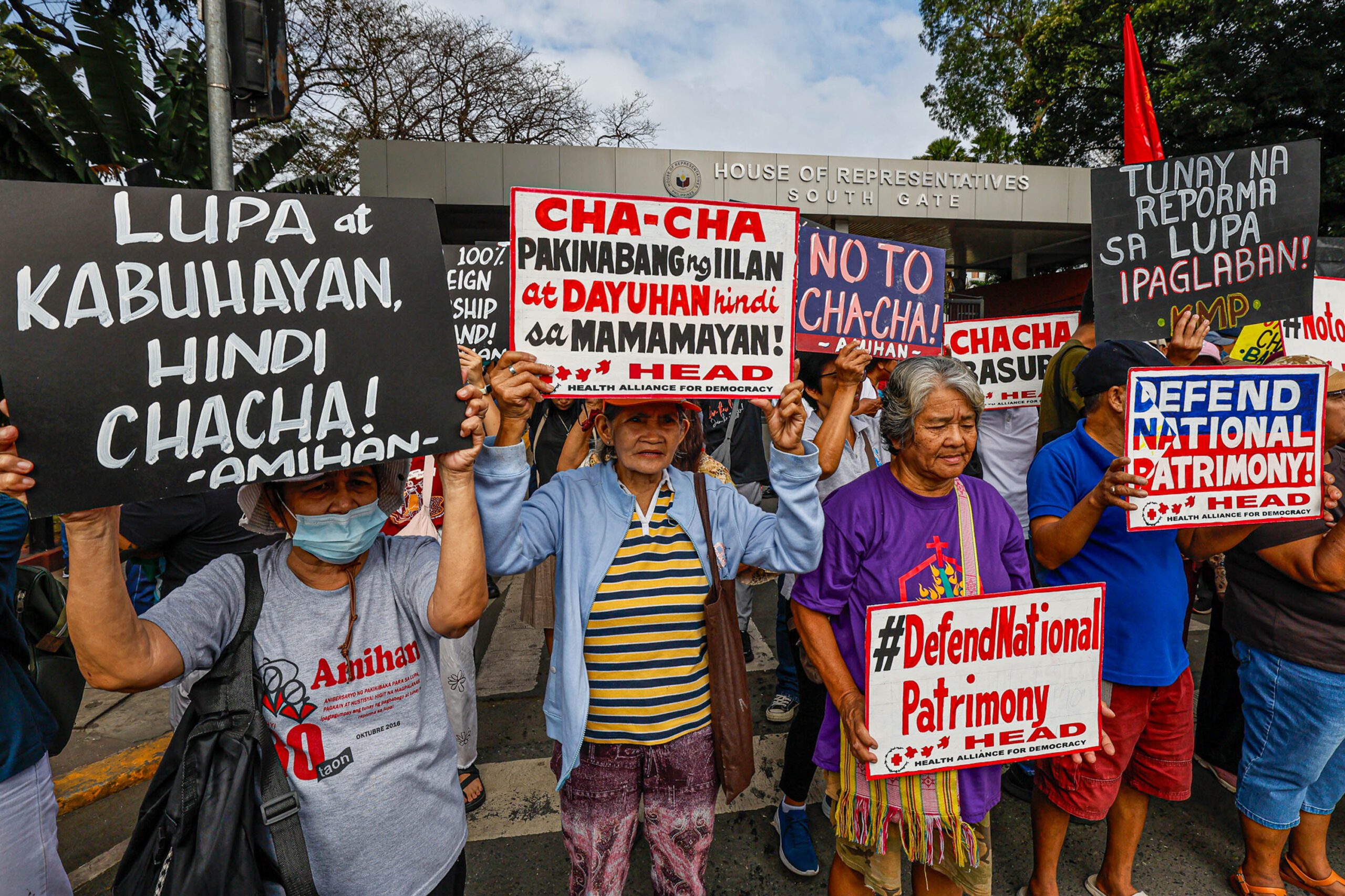
The Philippines, a vibrant democracy in Southeast Asia, periodically grapples with the query of Constitution Change, extra generally often called "Cha-cha." This refers back to the technique of amending or revising the 1987 Structure, a doc that serves because the supreme regulation of the land. Whereas seemingly a purely authorized and procedural matter, Cha-cha ignites passionate debates that contact upon the very core of Philippine society, its political panorama, and its future trajectory. This text delves into the complexities of Cha-cha, exploring its historic context, the arguments for and in opposition to it, the potential penalties, and the continued challenges it presents.
A Historic Overview:
The 1987 Structure, crafted within the aftermath of the Marcos dictatorship, aimed to determine a secure and democratic authorities. It enshrined basic rights, established a system of checks and balances, and sought to stop the recurrence of authoritarian rule. Nevertheless, the doc hasn’t been resistant to criticism. Since its ratification, there have been repeated requires amendments, pushed by numerous political and financial concerns.
Early makes an attempt at Cha-cha confronted important hurdles. The method itself is intricate, requiring supermajorities in each homes of Congress, and probably, a plebiscite for ratification by the folks. These excessive thresholds mirror the Structure’s inherent dedication to stability and the necessity for broad consensus on any important alterations.
Previous makes an attempt have usually been mired in political maneuvering and accusations of self-serving motives. Some argue that highly effective figures have sought to make use of Cha-cha to consolidate their energy or to advance particular financial pursuits. This notion of political opportunism has fueled public skepticism and resistance to constitutional reform.
Arguments for Constitution Change:
Proponents of Cha-cha usually advance a number of key arguments:
-
Financial Reforms: A significant impetus for constitutional change is the will to draw extra international funding and stimulate financial development. Amendments centered on stress-free international possession restrictions in sure sectors are sometimes proposed. Supporters argue that this may improve competitiveness and create extra jobs. They level to the constraints imposed by the Structure on international participation in key industries as a hindrance to growth.
-
Political Reforms: Some advocate for modifications to the political system, aiming to enhance governance and scale back corruption. This may embrace proposals for a shift from a presidential to a parliamentary system, or reforms to the electoral system to advertise fairer illustration. The objective is usually to create a extra environment friendly and accountable authorities.
-
Addressing Federalism: The institution of a federal system of presidency is a recurring theme in Cha-cha discussions. Proponents argue that this may decentralize energy, empower native governments, and promote regional growth, significantly in traditionally marginalized areas. They imagine {that a} federal construction would higher deal with the distinctive wants and challenges of various areas inside the archipelago.
-
Modernizing the Structure: The 1987 Structure, whereas groundbreaking for its time, has been criticized for its outdated provisions in areas akin to know-how and globalization. Amendments are proposed to deal with these points and make sure the Structure stays related within the twenty first century.
Arguments In opposition to Constitution Change:
Opponents of Cha-cha increase quite a few considerations:
-
Danger of Authoritarianism: A major worry is that Cha-cha might be exploited to undermine democratic establishments and pave the best way for authoritarian rule. The potential for concentrated energy within the arms of some is a significant level of rivalry. Critics warn that the method might be hijacked by these searching for to weaken checks and balances.
-
Lack of Public Session: Opponents usually criticize the shortage of significant public session and debate surrounding proposed amendments. They argue that such essential modifications shouldn’t be made with out broad public assist and understanding. The notion that Cha-cha is pushed by elite pursuits, reasonably than the need of the folks, fuels opposition.
-
Unintended Penalties: Critics spotlight the potential for unintended and adverse penalties from constitutional modifications. They argue that altering the elemental construction of presidency might destabilize the political system and result in unexpected challenges. The complexity of the Structure and the interconnectedness of its provisions make unintended penalties an actual risk.
-
Distraction from Urgent Points: Some argue that specializing in Cha-cha distracts from addressing extra urgent points going through the nation, akin to poverty, inequality, and corruption. They imagine that sources and political vitality needs to be directed in the direction of fixing rapid issues reasonably than endeavor a probably disruptive constitutional reform.
The Path Ahead: Challenges and Issues:
The trail in the direction of profitable Constitution Change within the Philippines is fraught with challenges. Constructing a broad nationwide consensus on such a basic challenge is exceptionally tough. The political panorama is usually fragmented, with competing pursuits and ideologies vying for affect. Moreover, public belief in authorities establishments stays a major hurdle. Any try at Cha-cha should deal with these points successfully to realize widespread assist.
Transparency and public engagement are essential. The method should be open and inclusive, guaranteeing that the voices of all segments of society are heard. A well-informed public debate is crucial to dispel misconceptions and construct a shared understanding of the implications of constitutional reform.
The potential financial advantages of Cha-cha should be rigorously weighed in opposition to the potential dangers to democratic establishments. Any proposed amendments needs to be completely vetted to make sure they’re in keeping with the rules of democracy, human rights, and good governance.
In the end, the choice on whether or not to proceed with Constitution Change rests with the Filipino folks. It’s a determination that calls for cautious consideration, open dialogue, and a dedication to upholding the rules of democracy and the rule of regulation. The way forward for the Philippines hinges on navigating this advanced course of with knowledge and foresight, guaranteeing that any constitutional reform serves the most effective pursuits of the nation and its residents. The continued debate underscores the very important significance of civic engagement and knowledgeable participation in shaping the way forward for this dynamic democracy. The highway forward stays unsure, however the ongoing dialog surrounding Cha-cha highlights the enduring significance of the Structure and its function within the ongoing evolution of the Philippines.

![[OPINION] Here we go again with charter change](https://www.rappler.com/tachyon/2023/03/TL-chacha.jpg)
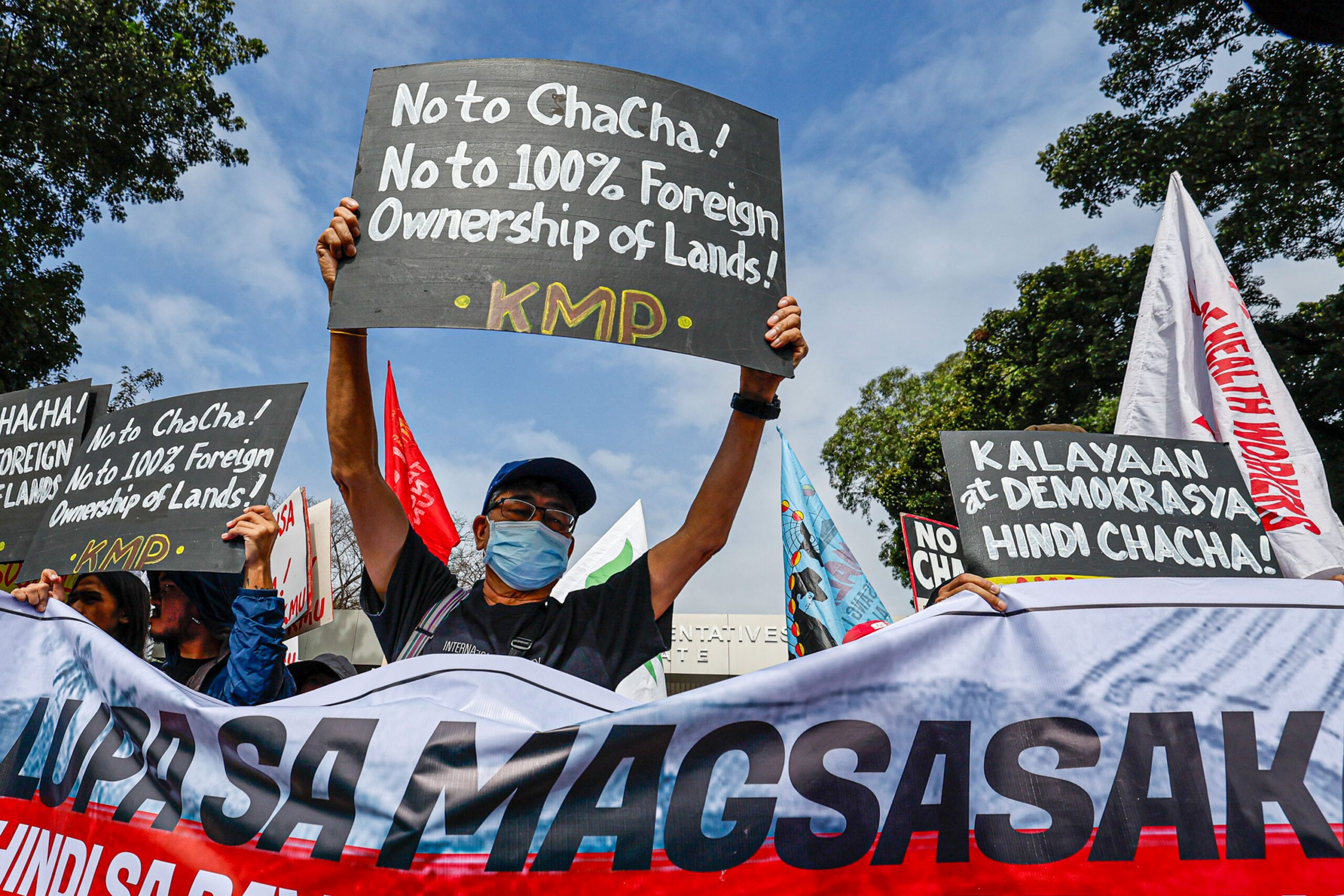
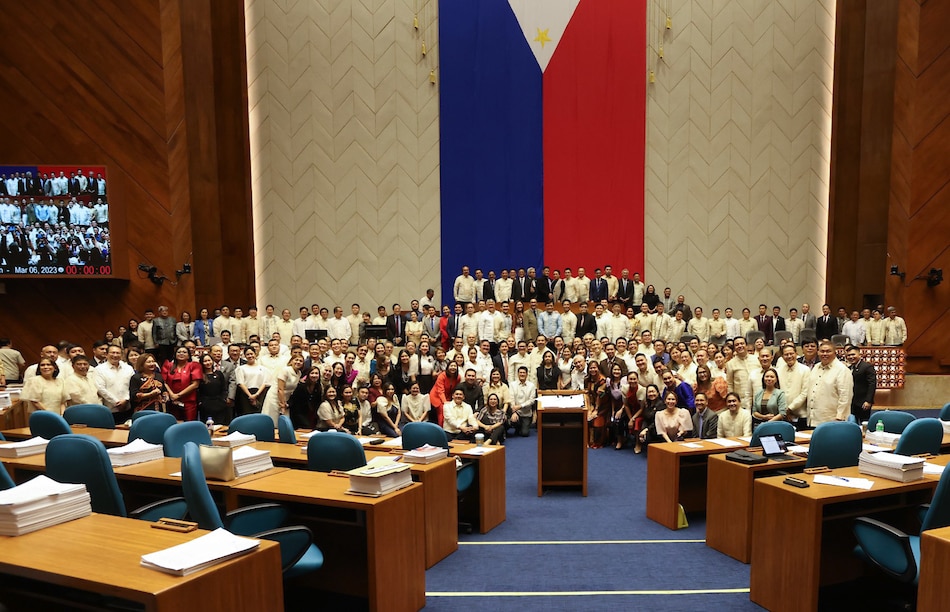
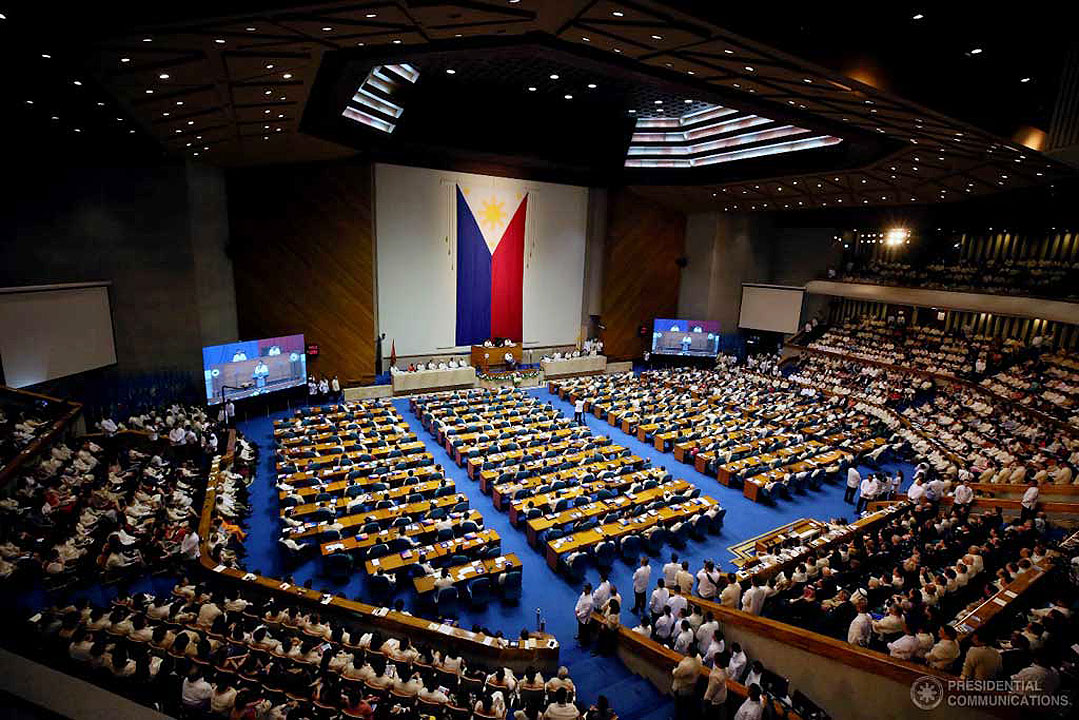


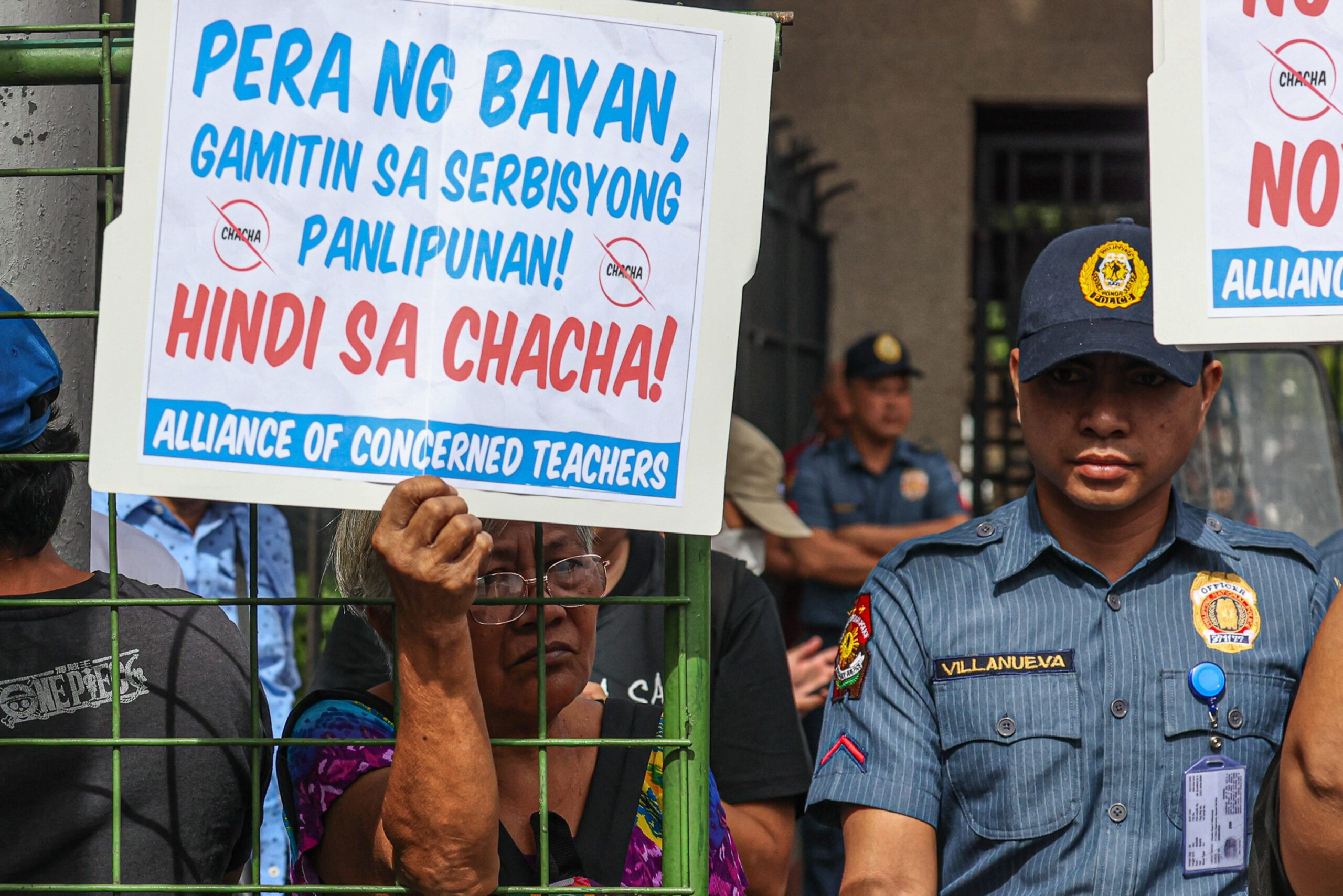
Closure
Thus, we hope this text has offered beneficial insights into Constitution Change within the Philippines: A Nation at a Crossroads. We thanks for taking the time to learn this text. See you in our subsequent article!